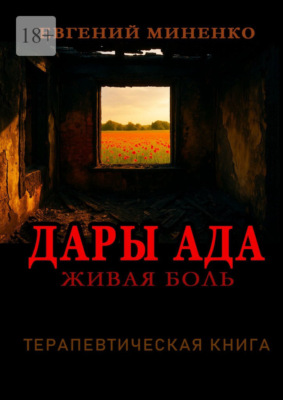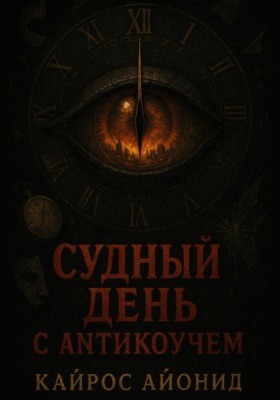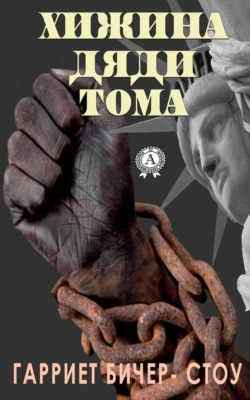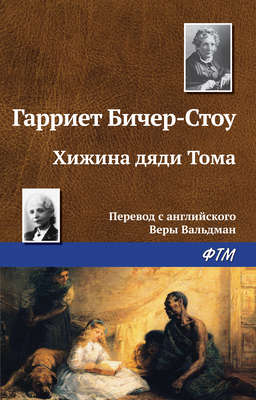Loe raamatut: «The May Flower, and Miscellaneous Writings»
INTRODUCTION
Mr. G. B. Emerson, in his late report to the legislature of Massachusetts on the trees and shrubs of that state, thus describes The May Flower.
"Often from beneath the edge of a snow bank are seen rising the fragrant, pearly-white or rose-colored flowers of this earliest harbinger of spring.
"It abounds in the edges of the woods about Plymouth, as elsewhere, and must have been the first flower to salute the storm-beaten crew of the Mayflower on the conclusion of their first terrible winter. Their descendants have thence piously derived the name, although its bloom is often passed before the coming in of May."
No flower could be more appropriately selected as an emblem token by the descendants of the Puritans. Though so fragrant and graceful, it is invariably the product of the hardest and most rocky soils, and seems to draw its ethereal beauty of color and wealth of perfume rather from the air than from the slight hold which its rootlets take of the earth. It may often be found in fullest beauty matting a granite lodge, with scarcely any perceptible soil for its support.
What better emblem of that faith, and hope, and piety, by which our fathers were supported in dreary and barren enterprises, and which drew their life and fragrance from heaven more than earth?
The May Flower was, therefore, many years since selected by the author as the title of a series of New England sketches. That work had comparatively a limited circulation, and is now entirely out of print. Its articles are republished in the present volume, with other miscellaneous writings, which have from time to time appeared in different periodicals. They have been written in all moods, from the gayest to the gravest – they are connected, in many cases, with the memory of friends and scenes most dear.
There are those now scattered through the world who will remember the social literary parties of Cincinnati, for whose genial meetings many of these articles were prepared. With most affectionate remembrances, the author dedicates the book to the yet surviving members of The Semicolon.
Andover, April, 1855.
UNCLE LOT
And so I am to write a story – but of what, and where? Shall it be radiant with the sky of Italy? or eloquent with the beau ideal of Greece? Shall it breathe odor and languor from the orient, or chivalry from the occident? or gayety from France? or vigor from England? No, no; these are all too old – too romance-like – too obviously picturesque for me. No; let me turn to my own land – my own New England; the land of bright fires and strong hearts; the land of deeds, and not of words; the land of fruits, and not of flowers; the land often spoken against, yet always respected; "the latchet of whose shoes the nations of the earth are not worthy to unloose."
Now, from this very heroic apostrophe, you may suppose that I have something very heroic to tell. By no means. It is merely a little introductory breeze of patriotism, such as occasionally brushes over every mind, bearing on its wings the remembrance of all we ever loved or cherished in the land of our early years; and if it should seem to be rodomontade to any people in other parts of the earth, let them only imagine it to be said about "Old Kentuck," old England, or any other corner of the world in which they happened to be born, and they will find it quite rational.
But, as touching our story, it is time to begin. Did you ever see the little village of Newbury, in New England? I dare say you never did; for it was just one of those out of the way places where nobody ever came unless they came on purpose: a green little hollow, wedged like a bird's nest between half a dozen high hills, that kept off the wind and kept out foreigners; so that the little place was as straitly sui generis as if there were not another in the world. The inhabitants were all of that respectable old standfast family who make it a point to be born, bred, married, die, and be buried all in the selfsame spot. There were just so many houses, and just so many people lived in them; and nobody ever seemed to be sick, or to die either, at least while I was there. The natives grew old till they could not grow any older, and then they stood still, and lasted from generation to generation. There was, too, an unchangeability about all the externals of Newbury. Here was a red house, and there was a brown house, and across the way was a yellow house; and there was a straggling rail fence or a tribe of mullein stalks between. The minister lived here, and 'Squire Moses lived there, and Deacon Hart lived under the hill, and Messrs. Nadab and Abihu Peters lived by the cross road, and the old "widder" Smith lived by the meeting house, and Ebenezer Camp kept a shoemaker's shop on one side, and Patience Mosely kept a milliner's shop in front; and there was old Comfort Scran, who kept store for the whole town, and sold axe heads, brass thimbles, licorice ball, fancy handkerchiefs, and every thing else you can think of. Here, too, was the general post office, where you might see letters marvellously folded, directed wrong side upward, stamped with a thimble, and superscribed to some of the Dollys, or Pollys, or Peters, or Moseses aforenamed or not named.
For the rest, as to manners, morals, arts, and sciences, the people in Newbury always went to their parties at three o'clock in the afternoon, and came home before dark; always stopped all work the minute the sun was down on Saturday night; always went to meeting on Sunday; had a school house with all the ordinary inconveniences; were in neighborly charity with each other; read their Bibles, feared their God, and were content with such things as they had – the best philosophy, after all. Such was the place into which Master James Benton made an irruption in the year eighteen hundred and no matter what. Now, this James is to be our hero, and he is just the hero for a sensation – at least, so you would have thought, if you had been in Newbury the week after his arrival. Master James was one of those whole-hearted, energetic Yankees, who rise in the world as naturally as cork does in water. He possessed a great share of that characteristic national trait so happily denominated "cuteness," which signifies an ability to do every thing without trying, and to know every thing without learning, and to make more use of one's ignorance than other people do of their knowledge. This quality in James was mingled with an elasticity of animal spirits, a buoyant cheerfulness of mind, which, though found in the New England character, perhaps, as often as any where else, is not ordinarily regarded as one of its distinguishing traits.
As to the personal appearance of our hero, we have not much to say of it – not half so much as the girls in Newbury found it necessary to remark, the first Sabbath that he shone out in the meeting house. There was a saucy frankness of countenance, a knowing roguery of eye, a joviality and prankishness of demeanor, that was wonderfully captivating, especially to the ladies.
It is true that Master James had an uncommonly comfortable opinion of himself, a full faith that there was nothing in creation that he could not learn and could not do; and this faith was maintained with an abounding and triumphant joyfulness, that fairly carried your sympathies along with him, and made you feel quite as much delighted with his qualifications and prospects as he felt himself. There are two kinds of self-sufficiency; one is amusing, and the other is provoking. His was the amusing kind. It seemed, in truth, to be only the buoyancy and overflow of a vivacious mind, delighted with every thing delightful, in himself or others. He was always ready to magnify his own praise, but quite as ready to exalt his neighbor, if the channel of discourse ran that way: his own perfections being more completely within his knowledge, he rejoiced in them more constantly; but, if those of any one else came within the same range, he was quite as much astonished and edified as if they had been his own.
Master James, at the time of his transit to the town of Newbury, was only eighteen years of age; so that it was difficult to say which predominated in him most, the boy or the man. The belief that he could, and the determination that he would, be something in the world had caused him to abandon his home, and, with all his worldly effects tied in a blue cotton pocket handkerchief, to proceed to seek his fortune in Newbury. And never did stranger in Yankee village rise to promotion with more unparalleled rapidity, or boast a greater plurality of employment. He figured as schoolmaster all the week, and as chorister on Sundays, and taught singing and reading in the evenings, besides studying Latin and Greek with the minister, nobody knew when; thus fitting for college, while he seemed to be doing every thing else in the world besides.
James understood every art and craft of popularity, and made himself mightily at home in all the chimney corners of the region round about; knew the geography of every body's cider barrel and apple bin, helping himself and every one else therefrom with all bountifulness; rejoicing in the good things of this life, devouring the old ladies' doughnuts and pumpkin pies with most flattering appetite, and appearing equally to relish every body and thing that came in his way.
The degree and versatility of his acquirements were truly wonderful. He knew all about arithmetic and history, and all about catching squirrels and planting corn; made poetry and hoe handles with equal celerity; wound yarn and took out grease spots for old ladies, and made nosegays and knickknacks for young ones; caught trout Saturday afternoons, and discussed doctrines on Sundays, with equal adroitness and effect. In short, Mr. James moved on through the place
"Victorious,
Happy and glorious,"
welcomed and privileged by every body in every place; and when he had told his last ghost story, and fairly flourished himself out of doors at the close of a long winter's evening, you might see the hard face of the good man of the house still phosphorescent with his departing radiance, and hear him exclaim, in a paroxysm of admiration, that "Jemeses talk re'ely did beat all; that he was sartainly most a miraculous cre'tur!"
It was wonderfully contrary to the buoyant activity of Master James's mind to keep a school. He had, moreover, so much of the boy and the rogue in his composition, that he could not be strict with the iniquities of the curly pates under his charge; and when he saw how determinately every little heart was boiling over with mischief and motion, he felt in his soul more disposed to join in and help them to a frolic than to lay justice to the line, as was meet. This would have made a sad case, had it not been that the activity of the master's mind communicated itself to his charge, just as the reaction of one brisk little spring will fill a manufactory with motion; so that there was more of an impulse towards study in the golden, good-natured day of James Benton than in the time of all that went before or came after him.
But when "school was out," James's spirits foamed over as naturally as a tumbler of soda water, and he could jump over benches and burst out of doors with as much rapture as the veriest little elf in his company. Then you might have seen him stepping homeward with a most felicitous expression of countenance, occasionally reaching his hand through the fence for a bunch of currants, or over it after a flower, or bursting into some back yard to help an old lady empty her wash tub, or stopping to pay his devoirs to Aunt This or Mistress That, for James well knew the importance of the "powers that be," and always kept the sunny side of the old ladies.
We shall not answer for James's general flirtations, which were sundry and manifold; for he had just the kindly heart that fell in love with every thing in feminine shape that came in his way, and if he had not been blessed with an equal facility in falling out again, we do not know what ever would have become of him. But at length he came into an abiding captivity, and it is quite time that he should; for, having devoted thus much space to the illustration of our hero, it is fit we should do something in behalf of our heroine; and, therefore, we must beg the reader's attention while we draw a diagram or two that will assist him in gaining a right idea of her.
Do you see yonder brown house, with its broad roof sloping almost to the ground on one side, and a great, unsupported, sun bonnet of a piazza shooting out over the front door? You must often have noticed it; you have seen its tall well sweep, relieved against the clear evening sky, or observed the feather beds and bolsters lounging out of its chamber windows on a still summer morning; you recollect its gate, that swung with a chain and a great stone; its pantry window, latticed with little brown slabs, and looking out upon a forest of bean poles. You remember the zephyrs that used to play among its pea brush, and shake the long tassels of its corn patch, and how vainly any zephyr might essay to perform similar flirtations with the considerate cabbages that were solemnly vegetating near by. Then there was the whole neighborhood of purple-leaved beets and feathery parsnips; there were the billows of gooseberry bushes rolled up by the fence, interspersed with rows of quince trees; and far off in one corner was one little patch, penuriously devoted to ornament, which flamed with marigolds, poppies, snappers, and four-o'clocks. Then there was a little box by itself with one rose geranium in it, which seemed to look around the garden as much like a stranger as a French dancing master in a Yankee meeting house.
That is the dwelling of Uncle Lot Griswold. Uncle Lot, as he was commonly called, had a character that a painter would sketch for its lights and contrasts rather than its symmetry. He was a chestnut burr, abounding with briers without and with substantial goodness within. He had the strong-grained practical sense, the calculating worldly wisdom of his class of people in New England; he had, too, a kindly heart; but all the strata of his character were crossed by a vein of surly petulance, that, half way between joke and earnest, colored every thing that he said and did.
If you asked a favor of Uncle Lot, he generally kept you arguing half an hour, to prove that you really needed it, and to tell you that he could not all the while be troubled with helping one body or another, all which time you might observe him regularly making his preparations to grant your request, and see, by an odd glimmer of his eye, that he was preparing to let you hear the "conclusion of the whole matter," which was, "Well, well – I guess – I'll go, on the hull– I 'spose I must, at least;" so off he would go and work while the day lasted, and then wind up with a farewell exhortation "not to be a callin' on your neighbors when you could get along without." If any of Uncle Lot's neighbors were in any trouble, he was always at hand to tell them that "they shouldn't a' done so;" that "it was strange they couldn't had more sense;" and then to close his exhortations by laboring more diligently than any to bring them out of their difficulties, groaning in spirit, meanwhile, that folks would make people so much trouble.
"Uncle Lot, father wants to know if you will lend him your hoe to-day," says a little boy, making his way across a cornfield.
"Why don't your father use his own hoe?"
"Ours is broke."
"Broke! How came it broke?"
"I broke it yesterday, trying to hit a squirrel."
"What business had you to be hittin' squirrels with a hoe? say!"
"But father wants to borrow yours."
"Why don't you have that mended? It's a great pester to have every body usin' a body's things."
"Well, I can borrow one some where else, I suppose," says the suppliant. After the boy has stumbled across the ploughed ground, and is fairly over the fence, Uncle Lot calls, —
"Halloo, there, you little rascal! what are you goin' off without the hoe for?"
"I didn't know as you meant to lend it."
"I didn't say I wouldn't, did I? Here, come and take it. – stay, I'll bring it; and do tell your father not to be a lettin' you hunt squirrels with his hoes next time."
Uncle Lot's household consisted of Aunt Sally, his wife, and an only son and daughter; the former, at the time our story begins, was at a neighboring literary institution. Aunt Sally was precisely as clever, as easy to be entreated, and kindly in externals, as her helpmate was the reverse. She was one of those respectable, pleasant old ladies whom you might often have met on the way to church on a Sunday, equipped with a great fan and a psalm book, and carrying some dried orange peel or a stalk of fennel, to give to the children if they were sleepy in meeting. She was as cheerful and domestic as the tea kettle that sung by her kitchen fire, and slipped along among Uncle Lot's angles and peculiarities as if there never was any thing the matter in the world; and the same mantle of sunshine seemed to have fallen on Miss Grace, her only daughter.
Pretty in her person and pleasant in her ways, endowed with native self-possession and address, lively and chatty, having a mind and a will of her own, yet good-humored withal, Miss Grace was a universal favorite. It would have puzzled a city lady to understand how Grace, who never was out of Newbury in her life, knew the way to speak, and act, and behave, on all occasions, exactly as if she had been taught how. She was just one of those wild flowers which you may sometimes see waving its little head in the woods, and looking so civilized and garden-like, that you wonder if it really did come up and grow there by nature. She was an adept in all household concerns, and there was something amazingly pretty in her energetic way of bustling about, and "putting things to rights." Like most Yankee damsels, she had a longing after the tree of knowledge, and, having exhausted the literary fountains of a district school, she fell to reading whatsoever came in her way. True, she had but little to read; but what she perused she had her own thoughts upon, so that a person of information, in talking with her, would feel a constant wondering pleasure to find that she had so much more to say of this, that, and the other thing than he expected.
Uncle Lot, like every one else, felt the magical brightness of his daughter, and was delighted with her praises, as might be discerned by his often finding occasion to remark that "he didn't see why the boys need to be all the time a' comin' to see Grace, for she was nothing so extror'nary, after all." About all matters and things at home she generally had her own way, while Uncle Lot would scold and give up with a regular good grace that was quite creditable.
"Father," says Grace, "I want to have a party next week."
"You sha'n't go to havin' your parties, Grace. I always have to eat bits and ends a fortnight after you have one, and I won't have it so." And so Uncle Lot walked out, and Aunt Sally and Miss Grace proceeded to make the cake and pies for the party.
When Uncle Lot came home, he saw a long array of pies and rows of cakes on the kitchen table.
"Grace – Grace – Grace, I say! What is all this here flummery for?"
"Why, it is to eat, father," said Grace, with a good-natured look of consciousness.
Uncle Lot tried his best to look sour; but his visage began to wax comical as he looked at his merry daughter; so he said nothing, but quietly sat down to his dinner.
"Father," said Grace, after dinner, "we shall want two more candlesticks next week."
"Why, can't you have your party with what you've got?"
"No, father, we want two more."
"I can't afford it, Grace – there's no sort of use on't – and you sha'n't have any."
"O, father, now do," said Grace.
"I won't, neither," said Uncle Lot, as he sallied out of the house, and took the road to Comfort Scran's store.
In half an hour he returned again; and fumbling in his pocket, and drawing forth a candlestick, levelled it at Grace.
"There's your candlestick."
"But, father, I said I wanted two."
"Why, can't you make one do?"
"No, I can't; I must have two."
"Well, then, there's t'other; and here's a fol-de-rol for you to tie round your neck." So saying, he bolted for the door, and took himself off with all speed. It was much after this fashion that matters commonly went on in the brown house.
But having tarried long on the way, we must proceed with the main story.
James thought Miss Grace was a glorious girl; and as to what Miss Grace thought of Master James, perhaps it would not have been developed had she not been called to stand on the defensive for him with Uncle Lot. For, from the time that the whole village of Newbury began to be wholly given unto the praise of Master James, Uncle Lot set his face as a flint against him – from the laudable fear of following the multitude. He therefore made conscience of stoutly gainsaying every thing that was said in his behalf, which, as James was in high favor with Aunt Sally, he had frequent opportunities to do.
So when Miss Grace perceived that Uncle Lot did not like our hero as much as he ought to do, she, of course, was bound to like him well enough to make up for it. Certain it is that they were remarkably happy in finding opportunities of being acquainted; that James waited on her, as a matter of course, from singing school; that he volunteered making a new box for her geranium on an improved plan; and above all, that he was remarkably particular in his attentions to Aunt Sally – a stroke of policy which showed that James had a natural genius for this sort of matters. Even when emerging from the meeting house in full glory, with flute and psalm book under his arm, he would stop to ask her how she did; and if it was cold weather, he would carry her foot stove all the way home from meeting, discoursing upon the sermon, and other serious matters, as Aunt Sally observed, "in the pleasantest, prettiest way that ever ye see." This flute was one of the crying sins of James in the eyes of Uncle Lot. James was particularly fond of it, because he had learned to play on it by intuition; and on the decease of the old pitchpipe, which was slain by a fall from the gallery, he took the liberty to introduce the flute in its place. For this, and other sins, and for the good reasons above named, Uncle Lot's countenance was not towards James, neither could he be moved to him-ward by any manner of means.
To all Aunt Sally's good words and kind speeches, he had only to say that "he didn't like him; that he hated to see him a' manifesting and glorifying there in the front gallery Sundays, and a' acting every where as if he was master of all: he didn't like it, and he wouldn't." But our hero was no whit cast down or discomfited by the malcontent aspect of Uncle Lot. On the contrary, when report was made to him of divers of his hard speeches, he only shrugged his shoulders, with a very satisfied air, and remarked that "he knew a thing or two for all that."
"Why, James," said his companion and chief counsellor, "do you think Grace likes you?"
"I don't know," said our hero, with a comfortable appearance of certainty.
"But you can't get her, James, if Uncle Lot is cross about it."
"Fudge! I can make Uncle Lot like me if I have a mind to try."
"Well then, Jim, you'll have to give up that flute of yours, I tell you now."
"Fa, sol, la – I can make him like me and my flute too."
"Why, how will you do it?"
"O, I'll work it," said our hero.
"Well, Jim, I tell you now, you don't know Uncle Lot if you say so; for he is just the settest critter in his way that ever you saw."
"I do know Uncle Lot, though, better than most folks; he is no more cross than I am; and as to his being set, you have nothing to do but make him think he is in his own way when he is in yours – that is all."
"Well," said the other, "but you see I don't believe it."
"And I'll bet you a gray squirrel that I'll go there this very evening, and get him to like me and my flute both," said James.
Accordingly the late sunshine of that afternoon shone full on the yellow buttons of James as he proceeded to the place of conflict. It was a bright, beautiful evening. A thunder storm had just cleared away, and the silver clouds lay rolled up in masses around the setting sun; the rain drops were sparkling and winking to each other over the ends of the leaves, and all the bluebirds and robins, breaking forth into song, made the little green valley as merry as a musical box.
James's soul was always overflowing with that kind of poetry which consists in feeling unspeakably happy; and it is not to be wondered at, considering where he was going, that he should feel in a double ecstasy on the present occasion. He stepped gayly along, occasionally springing over a fence to the right to see whether the rain had swollen the trout brook, or to the left to notice the ripening of Mr. Somebody's watermelons – for James always had an eye on all his neighbors' matters as well as his own.
In this way he proceeded till he arrived at the picket fence that marked the commencement of Uncle Lot's ground. Here he stopped to consider. Just then four or five sheep walked up, and began also to consider a loose picket, which was hanging just ready to drop off; and James began to look at the sheep. "Well, mister," said he, as he observed the leader judiciously drawing himself through the gap, "in with you – just what I wanted;" and having waited a moment to ascertain that all the company were likely to follow, he ran with all haste towards the house, and swinging open the gate, pressed all breathless to the door.
"Uncle Lot, there are four or five sheep in your garden!" Uncle Lot dropped his whetstone and scythe.
"I'll drive them out," said our hero; and with that, he ran down the garden alley, and made a furious descent on the enemy; bestirring himself, as Bunyan says, "lustily and with good courage," till every sheep had skipped out much quicker than it skipped in; and then, springing over the fence, he seized a great stone, and nailed on the picket so effectually that no sheep could possibly encourage the hope of getting in again. This was all the work of a minute, and he was back again; but so exceedingly out of breath that it was necessary for him to stop a moment and rest himself. Uncle Lot looked ungraciously satisfied.
"What under the canopy set you to scampering so?" said he; "I could a' driv out them critturs myself."
"If you are at all particular about driving them out yourself, I can let them in again," said James.
Uncle Lot looked at him with an odd sort of twinkle in the corner of his eye.
"'Spose I must ask you to walk in," said he.
"Much obliged," said James; "but I am in a great hurry." So saying, he started in very business-like fashion towards the gate.
"You'd better jest stop a minute."
"Can't stay a minute."
"I don't see what possesses you to be all the while in sich a hurry; a body would think you had all creation on your shoulders."
"Just my situation, Uncle Lot," said James, swinging open the gate.
"Well, at any rate, have a drink of cider, can't ye?" said Uncle Lot, who was now quite engaged to have his own way in the case.
James found it convenient to accept this invitation, and Uncle Lot was twice as good-natured as if he had staid in the first of the matter.
Once fairly forced into the premises, James thought fit to forget his long walk and excess of business, especially as about that moment Aunt Sally and Miss Grace returned from an afternoon call. You may be sure that the last thing these respectable ladies looked for was to find Uncle Lot and Master James tête-à-tête, over a pitcher of cider; and when, as they entered, our hero looked up with something of a mischievous air, Miss Grace, in particular, was so puzzled that it took her at least a quarter of an hour to untie her bonnet strings. But James staid, and acted the agreeable to perfection. First, he must needs go down into the garden to look at Uncle Lot's wonderful cabbages, and then he promenaded all around the corn patch, stopping every few moments and looking up with an appearance of great gratification, as if he had never seen such corn in his life; and then he examined Uncle Lot's favorite apple tree with an expression of wonderful interest.
"I never!" he broke forth, having stationed himself against the fence opposite to it; "what kind of an apple tree is that?"
"It's a bellflower, or somethin' another," said Uncle Lot.
"Why, where did you get it? I never saw such apples!" said our hero, with his eyes still fixed on the tree.
Uncle Lot pulled up a stalk or two of weeds, and threw them over the fence, just to show that he did not care any thing about the matter; and then he came up and stood by James.
"Nothin' so remarkable, as I know on," said he.
Just then, Grace came to say that supper was ready. Once seated at table, it was astonishing to see the perfect and smiling assurance with which our hero continued his addresses to Uncle Lot. It sometimes goes a great way towards making people like us to take it for granted that they do already; and upon this principle James proceeded. He talked, laughed, told stories, and joked with the most fearless assurance, occasionally seconding his words by looking Uncle Lot in the face, with a countenance so full of good will as would have melted any snowdrift of prejudices in the world.
James also had one natural accomplishment, more courtier-like than all the diplomacy in Europe, and that was the gift of feeling a real interest for any body in five minutes; so that, if he began to please in jest, he generally ended in earnest. With great simplicity of mind, he had a natural tact for seeing into others, and watched their motions with the same delight with which a child gazes at the wheels and springs of a watch, to "see what it will do."




















